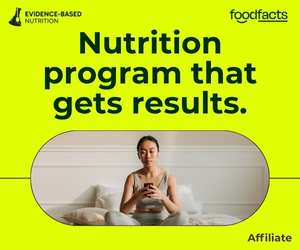
Seed oils are in baby formula for a reason. Here’s why it matters





Coral Red: Mostly False
Orange: Misleading
Yellow: Mostly True
Green: True
Learn more about our fact-checking policies
Dr. Paul Saladino claims that seed oils in infant formula are “a train wreck” for a baby’s brain health. He suggests that there is clear evidence that these oils are detrimental to infant developing brains and urges for changes to be made to formula compositions. We bring you a reality check by reviewing the evidence on infant formula and baby development.
Full Claim: [Seed oils] are a train wreck for your baby’s brain. We know that 55-66 percent of infants are fed formula. Breast milk is obviously best but if you’re feeding infant formula to your baby, you need to know that this contains 25 to 275 times more oxidised lipids [...] This is the problem with these infant formulas, they’re full of seed oils. This is not great for infant developing brains to have seed oils and oxidised lipids at that level in infant formula.
Seed oils are a regulated source of essential fatty acids required for a baby’s growth and development.
Misinformation about infant nutrition can cause unnecessary parental anxiety and lead to avoidance of safe feeding options. A balanced understanding is critical, as formula provides vital nutrients for infants who cannot be breastfed.

When evaluating claims about infant nutrition, prioritise peer-reviewed studies and guidance from paediatric organisations over social media influencers.
Claim 1: [Seed oils] are a train wreck for your baby’s brain.
Fact-Check: The claim lacks scientific evidence. In fact, the use of seed oils in infant formula has the opposite effect.
Seed oils such as sunflower and soybean oil are added to formula to provide essential omega-3 and omega-6 fatty acids critical for brain development. Blending vegetable fats allows to mimic the composition of breast milk as closely as possible (source, source).
Scientific Consensus: Fats are vital for infants, providing up to half their energy needs during early development (source).
A review concluded that blending vegetable and bovine fats might create optimal formulas for infant health (source). The researchers also note that despite its benefits, fats derived from dairy are not sufficient to cover all lipid (fat) needs for infants. For example, it contains high levels of saturated fats and low levels of long-chain fatty acids (such as omega-3 and omega-6 fatty acids) when compared to breast milk. Seed oils and oils derived from plant sources are generally higher in these types of lipids and are a good complement to dairy fats to achieve a mix that most resembles breast milk. This contradicts Saladino’s suggestion that all seed oils should be removed from formulas.
.avif)
Exclusive breastfeeding in the first 6 months of life is the best option for infant development, growth and immunity. However, for parents who are unable to breastfeed, there are many viable options for breastmilk substitutes on the market, commonly known as infant formula. This formula is just that - a mix of ingredients designed to mimic breastmilk’s nutritional profile as closely as possible, including its fat content. This means combining multiple sources of lipids (fats), including seed oils which are higher in poly-unsaturated and long-chain fatty acids than dairy, to achieve the optimal lipid ratio.
Claim 2: Infant formula contains a lot more oxidised lipids than breast milk
Fact-Check: Saladino states that this has been “clearly shown” and cites a study that found higher levels of oxidised lipids (like 4-HHE and 4-HNE) in formula compared to breast milk (source). This statement lacks crucial context needed to address the implication that it has also been “clearly shown” that the level of oxidised lipids in formula is detrimental to a baby’s brain development.
Firstly, oxidation is a natural process in all fats. Fats oxidise when they’re exposed to heat, light, or oxygen for extended periods—this can happen during processing or storage. While some oxidised fats can form compounds that may cause harm in high amounts, infant formula is carefully regulated and includes antioxidants like vitamin E to mitigate this (source). It is important to remember that infant formula is one of the most regulated food products globally. Strict guidelines ensure that levels of contaminants and oxidation products remain within safe limits. Formulas are also continually reformulated to improve lipid stability (source).
Secondly, the cited study did not establish a causal link between oxidised lipids and harm to infant brain health.
Scientific Consensus: On the other hand, the evidence supports that infant formulas can effectively assist a baby’s development and health, offering a valuable alternative to mothers who cannot breastfeed.
Research also suggests nutrient-enriched formulas that closely mimic breast milk “in lipid composition as well as structural properties of lipid droplets during infancy may positively affect cognitive outcomes during childhood” when compared with standard formula (source).

Did you know that cow’s milk is not recommended as a beverage for infants under the age of 12 months? Because of its composition in fats, protein and minerals, cow’s milk is not an appropriate substitute for breastmilk or infant formula at this age. Infants’ kidneys are still developing in the first year of life and the high mineral and protein content in cow’s milk is difficult for them to process and could lead to health complications (source, source). Whole milk can safely be introduced after 1 year.
Final Thoughts
This type of messaging is likely to trigger fear among a vulnerable population: parents of young children. While breastmilk remains the most beneficial method of feeding infants, there are many reasons why breastfeeding might not be possible, and messaging that stigmatises bottle feeding can negatively affect parental mental health and discourage the use of safe feeding options.
Seed oils are safe for consumption and provide essential nutrients crucial for infant growth, making them an integral part of regulated formulas. Parents should consult healthcare professionals for accurate guidance on infant nutrition rather than relying on social media claims.
Check out this guide to help you navigate nutrition information online, and to better understand what to watch out for when an author claims their argument is supported by a study.
We have contacted Dr. Paul Saladino and are awaiting a response.
Disclaimer
This fact-check is intended to provide information based on available scientific evidence. It should not be considered as medical advice. For personalised health guidance, consult with a qualified healthcare professional.
Sources + Further Reading
Berger, A. et al. (2000). “Nutritional implications of replacing bovine milk fat with vegetable oil in infant formulas.”
Prosser, C.G. et al. (2010). “Composition and distribution of fatty acids in triglycerides from goat infant formulas with milk fat.”
Schipper, L. et al. (2023). “Infant formula containing large, milk phospholipid-coated lipid droplets and dairy lipids affects cognitive performance at school age.”
Hageman, J.H.J. et al. (2019). “Comparison of bovine milk fat and vegetable fat for infant formula: Implications for infant health.”
Michalski, M.C. et al. (2008). “Oxidation products of polyunsaturated fatty acids in infant formulas compared to human milk--a preliminary study.”
Korchazhkina, O. et al. (2006). “Effects of exclusive formula or breast milk feeding on oxidative stress in healthy preterm infants.”
Delplanque, B. et al. (2015). “Lipid Quality in Infant Nutrition: Current Knowledge and Future Opportunities.”
CDC (2025). “Cow's Milk and Milk Alternatives.”
NHS (2022). “Drinks and cups for babies and young children.”
Sadler, I. (2024). “‘The Study Shows’ or Does It? How to Spot Misused Research on Social Media.”



Foodfacts.org is an independent non-profit fact-checking platform dedicated to exposing misinformation in the food industry. We provide transparent, science-based insights on nutrition, health, and environmental impacts, empowering consumers to make informed choices for a healthier society and planet.
🛡️ Stand Against Nutrition Misinformation
Misinformation is a growing threat to our health and planet. At FoodFacts.org, we're dedicated to exposing the truth behind misleading food narratives. But we can't do it without your support.
Your monthly donation can:
✅ Combat viral diet myths and corporate spin
✅ Support our team of dedicated fact-checkers and educators
✅ Keep our myth-busting platforms running

Was this article helpful?

.avif)






.avif)







.svg)
